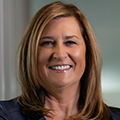The Edge for April 2017
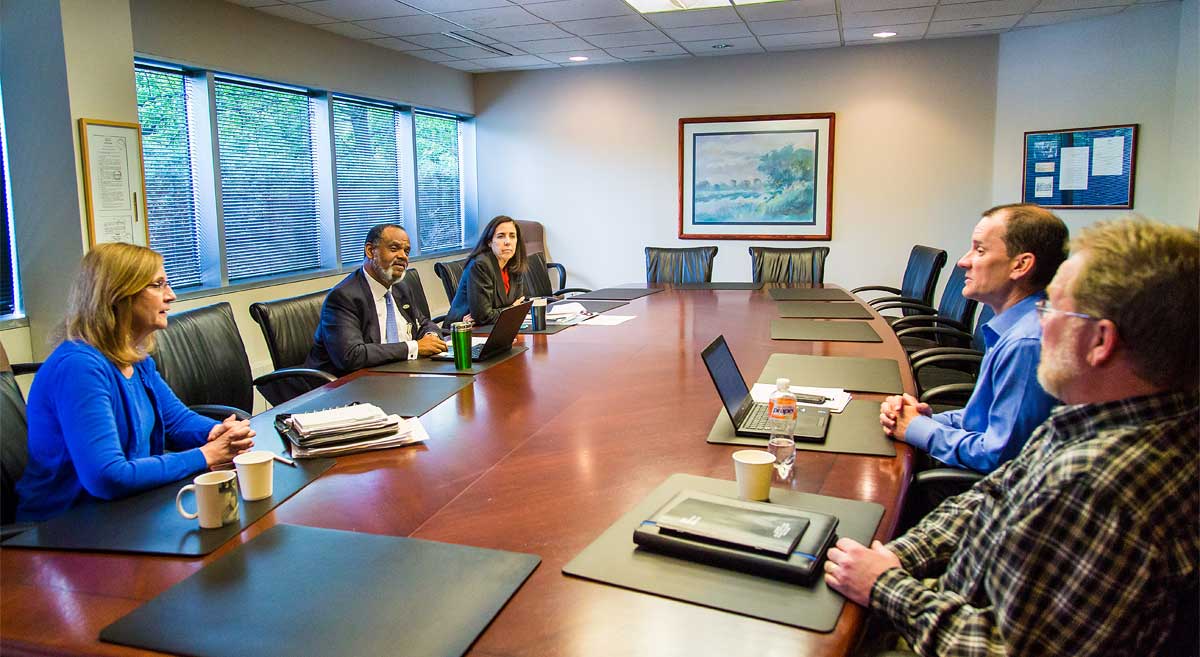 “In our staff meetings, we strive to really listen.”
“In our staff meetings, we strive to really listen.”
-- NJCPA CEO and Executive Director, Ralph Thomas (pictured on left)
Meetings can be the bane of office life. But when done right, they are effective ways to brainstorm ideas and get teams on the same page. We asked five New Jersey executives to share their secrets to leading effective meetings. They said: Share the agenda in advance with participants, listen, keep a time limit, don’t tolerate off-topic discussion, get everybody involved, assign tasks clearly and follow-up with a written summary. Of course, end the meetings on time so your team can get back to their desks, or, errr, to their next meeting.
Here’s what the five executives said:
Listen Well
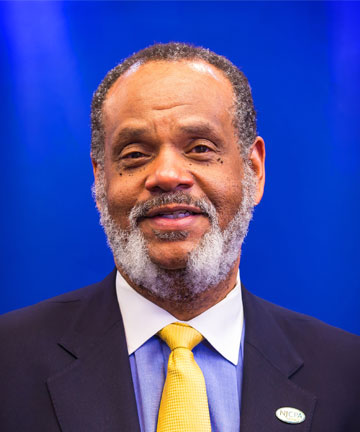 After the initial greetings (in a meeting), I put my folders, papers and agenda down on the table (to minimize distractions). Quite frankly, listening is undervalued in today’s business world.
After the initial greetings (in a meeting), I put my folders, papers and agenda down on the table (to minimize distractions). Quite frankly, listening is undervalued in today’s business world.
In our staff meetings, we strive to really listen to what’s being said. We use a simple, but effective, process: We ask for written status updates to be sent ahead of time. This way, during the meeting, people can ask specific questions, and the rest of the time is spent brainstorming about upcoming issues and projects. Meeting time is not wasted by repeating information. Honing in on what’s important from the start makes it easier for all employees to contribute – from the newest hire to the seasoned professional.
– Ralph Albert Thomas, CEO and executive director, NJCPA
Keep a Time Limit
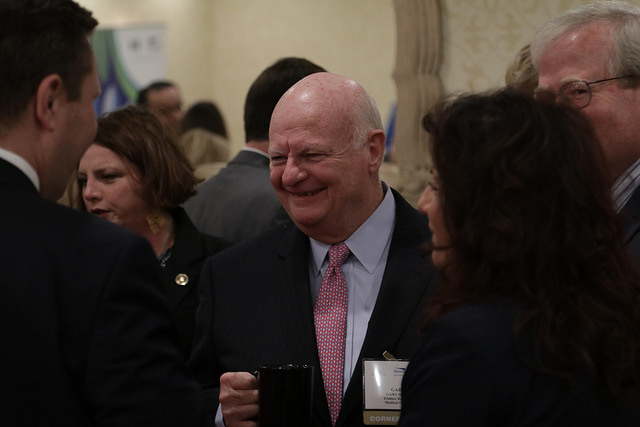 Remember the ‘80/20 rule’ (typically 80 percent of any meeting is unproductive). Keep people focused on the task. Don’t tolerate off-topic discussion. Be sure to set a time limit, and use that time working toward defined goals that are outlined before the meeting begins. Let it be known that those raising concerns or problems should also be prepared to suggest solutions. Conclude meetings by outlining next steps.
Remember the ‘80/20 rule’ (typically 80 percent of any meeting is unproductive). Keep people focused on the task. Don’t tolerate off-topic discussion. Be sure to set a time limit, and use that time working toward defined goals that are outlined before the meeting begins. Let it be known that those raising concerns or problems should also be prepared to suggest solutions. Conclude meetings by outlining next steps.
– Gary S. Horan, president & CEO, Trinitas Regional Medical Center
Start with an Ice-Breaker
Start with an ice-breaker. Non-business dialogue helps you keep tabs on people’s moods and mindsets so you can adjust your approach as needed.
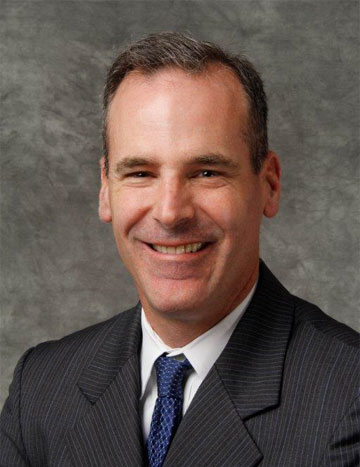
Keep meetings brief and ask yourself whether agenda items are simply updates, or topics that require a discussion on strategy or execution. Ask participants if they have time constraints and if they need to speak earlier - accommodate them when possible. For recurring staff meetings, ask for people’s input on the date, time and frequency. You may be surprised by the feedback.
Be aware of time. Propose ending discussions on topics that are taking too much time, and recommend taking action on those topics at another meeting or call if necessary.
Start and end meetings five minutes after and before the half hour or hour. People with packed schedules appreciate the opportunity to take care of a pressing item or use the restroom. As a result, they are more engaged during your meetings, and you help avoid wasting other people’s time while waiting for participants who may be late.
Review action steps at the end of the meeting to ensure everyone is on the same page. Thank everyone for their input at the close of the meeting.
– Paul Marden, CEO, UnitedHealthcare of New Jersey
Stick to the Agenda
The meeting organizer must establish a goal for the meeting, and create an experience that allows the team to achieve that goal.
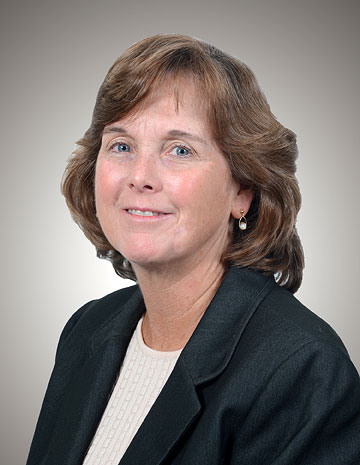
The meeting should include:
- a timed agenda communicated at least 24 hours prior to the meeting.
- a timely start and finish of the meeting.
- the appropriate participants.
- the ability for the group to join in-person and virtually.
- a note-taker so discussions can be summarized and sent to the group following the meeting.
The meeting organizer must ensure that the group stays on target before, during and after the meeting, and, in some cases, set up a follow-up meeting to dive deeper. There always are action steps to be taken after the meeting. If those steps are not taken, the meeting (ends up being) a waste of time and energy for the group.
– Rose Ann Slawson, office managing partner – Eatontown, CohnReznick
Get Everybody Involved
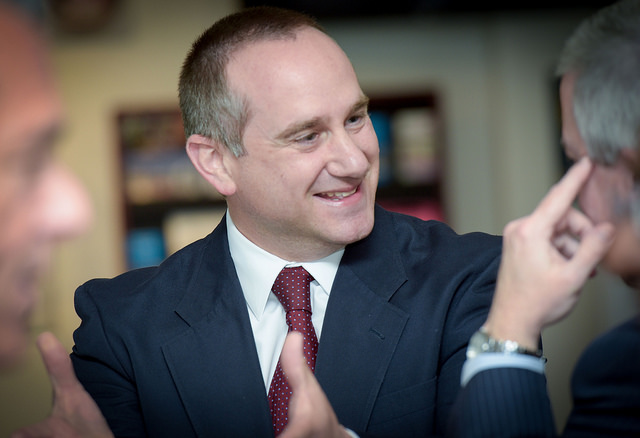 Make sure everybody is encouraged to ask questions and contribute. You don’t want one or two people dominating the meeting with their thoughts and agendas. The facilitator must make sure the meeting remains on point and everybody gets heard. A meeting should result in groupthink.
Make sure everybody is encouraged to ask questions and contribute. You don’t want one or two people dominating the meeting with their thoughts and agendas. The facilitator must make sure the meeting remains on point and everybody gets heard. A meeting should result in groupthink.
It should be defined clearly whether a meeting will result in a project and clearly outlined who will be assigned tasks. This way, people know clearly what they are responsible for and they can report their progress at the next meeting.
Check in at the end of the meeting. Go around the room, by asking whether we accomplished what we set out to accomplish.
– Kevin Friedlander, northeast corporate communications manager, Wells Fargo
Interviews and submissions are edited and condensed.


